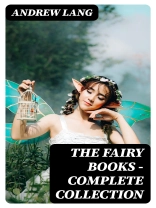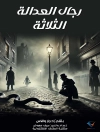In ‘The Fairy Books – Complete Collection, ‘ Andrew Lang meticulously compiles a treasure trove of fairy tales that span various cultures and traditions. Characterized by his engaging prose and rich descriptive detail, Lang’s literary style blends narrative simplicity with a profound understanding of the psychological undercurrents that define folklore. Each tale is accompanied by Lang’s insightful prefatory remarks, which contextualize the stories within the broader framework of myth, morality, and cultural heritage, shining a light on their enduring relevance in both Victorian society and the modern world. Andrew Lang, a Scottish folklorist, poet, and literary critic, was driven by a passion for collecting and preserving oral traditions that might otherwise be lost to time. His extensive travels and academic pursuits informed his desire to explore the intersection of European folklore and classical themes, culminating in this expansive collection. Lang’s efforts were not merely to entertain; he sought to educate his readers about the rich tapestry of humanity’s shared stories, promoting an appreciation of the world’s diverse cultures. This complete collection is highly recommended for both enthusiasts of fairy tales and those interested in the cultural analysis of folklore. Lang’s work invites readers to engage with the whimsical and often moralistic nature of these tales, making them relevant to contemporary discussions about identity, tradition, and storytelling. Dive into this rich compendium to rediscover the magic and wisdom that fairy tales have to offer.
A propos de l’auteur
Andrew Lang (1844-1912) was a prolific Scottish writer and poet known for his work as a collector and publisher of folk and fairy tales. A man of diverse talents and interests, Lang contributed to various fields, including anthropology, mythology, history, and literary criticism; however, his enduring legacy rests with his contributions to the world of children’s literature. His most famous works are ‘The Fairy Books, ‘ a series of 25 volumes, each uniquely colored and collectively known as ‘The Fairy Books – Complete Collection’, where he compiled tales from around the world for the enjoyment and education of young readers. These collections were not original fairy tales but rather retellings of traditional stories, notable for their attention to mythic narrative structure and cultural authenticity. Lang’s approach was both scholarly and whimsical, aiming to preserve the enchantment and moral lessons inherent in these stories while making them accessible to a modern audience. His literary style combined the Victorian fascination with the exotic and the rational, presenting the tales in a manner that reflected both his academic rigor and his whimsical love of storytelling. Beyond his work with fairy tales, Lang produced articles for The Daily News and other periodicals, and his critical works on Homer and other historical figures were influential in their contemporary discourse. His distinguished career as an author and academic solidified Lang’s reputation as an important figure in the literary canon of children’s folk and fairy tales.












